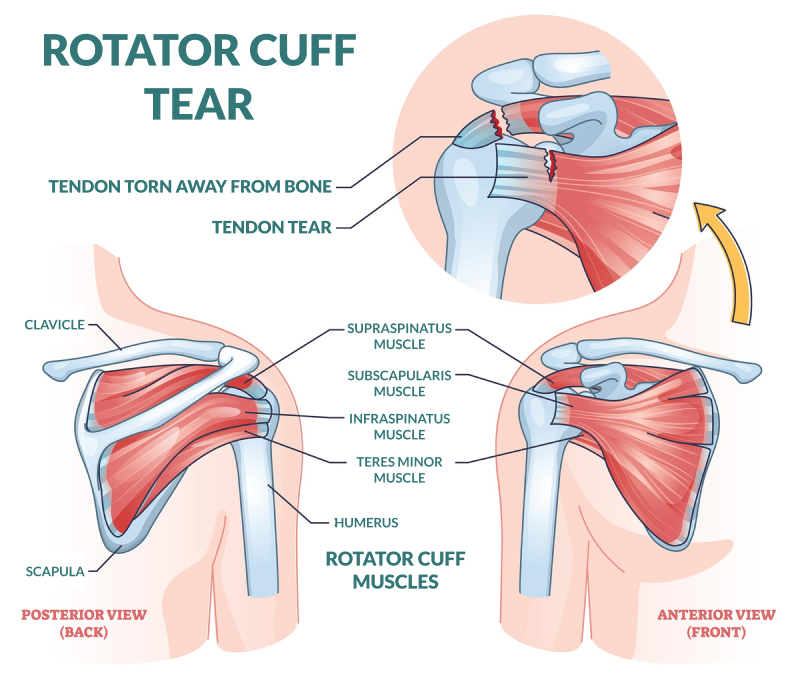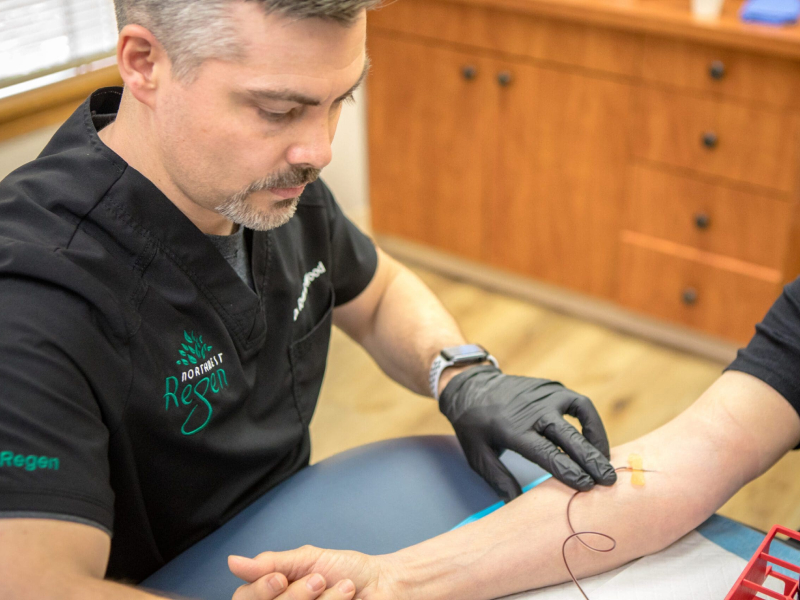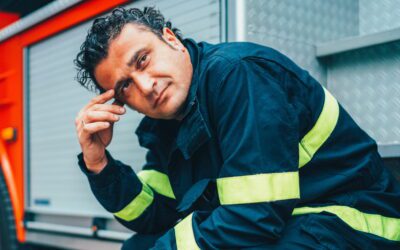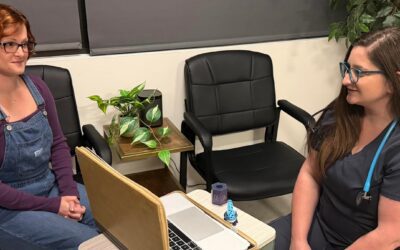Rotator cuff injuries are a common issue, especially for athletes. Repetitive overhead actions that come with painting, swimming, or tennis can irritate and damage the rotator cuff tendon.
If you participate regularly in sports like golf or basketball, you may already be familiar with the wear-and-tear that your passion for athletics can have on your upper body, shoulders, and your rotator cuffs. You could also find yourself with an injured or torn rotator cuff from accidents where you slip or fall onto one of your outstretched arms. But it’s not just sports, repetitive actions, and unfortunate falls that cause rotator cuff injuries.
In fact, tissues in the rotator cuff can break down over time simply as part of the aging process. So, athlete or not, you might be experiencing pain from a rotator cuff injury and be in search of help. If so, you’ve come to the right place. NW Regen offers regenerative treatments that help.
Different Kinds of Rotator Cuff Injuries & Treatments
Rotator cuff injuries can be quite debilitating, affecting your ability to perform daily tasks. These injuries may range from inflammation to a full tear, with varying levels of pain. Let’s define them:
- Inflammation is irritation that can be caused by overuse.
- Impingement is when inflamed tissue rubs against your bone.
- Partial tear is when frayed tissues create small rips and tears in your tissues.
- Full tear is when your muscles and tendons are no longer attached to the bone.
Traditional treatments vary depending on age, but most often involve rest, physical therapy, corticosteroid injections, or when needed even surgery. Across the US and here in Portland, a newer treatment option is gaining much attention: Platelet-Rich Plasma (PRP) therapy.
Let’s take a closer look at how PRP therapy with NW Regen can become your most effective solution for your rotator cuff injuries.
Understanding Rotator Cuff Injuries
The rotator cuff is a group of four muscles and their tendons that stabilize the shoulder:

As noted, injuries to the rotator cuff can range from mild strains to severe tears. Common symptoms include pain, weakness, and a limited range of motion. Pain may be especially noticeable when lifting your arm over your head or reaching behind your back.Traditional treatments like physical therapy and surgery can be effective, but they often come with lengthy recovery times and varying degrees of success.
What is PRP Therapy?
Platelet-rich plasma (PRP) injections are a biologic therapy that uses a patient’s own blood to stimulate healing and repair in certain injuries and conditions, including rotator cuff injuries.
PRP therapy at NW Regen involves our clinic drawing a small amount of your own blood and processing it to concentrate the platelets.
Platelets are cell fragments in blood that help blood clot and contain growth factors that promote healing. They are rich in growth factors that can accelerate tissue repair and reduce inflammation. The platelets used in your platelet-rich plasma (PRP) therapy promote healing by releasing your own growth factors and proteins to stimulate tissue regeneration in your body.
Here’s how it works: After we draw your blood, spin it in a centrifuge to separate the platelets from other blood components, and create the platelet-rich plasma for injection, our specialist in injection therapies, Dr. Ryan Wood, uses ultrasound guidance to ensure accurate placement to inject the concentrated platelets that are in the platelet-rich plasma into your injured area.
What conditions do PRP injections treat?

- Chronic joint pain and instability
- Degenerative osteoarthritis in joints
- Sprains, strains, and other sports injuries
- Meniscal Tears
- Rotator Cuff Tears
- Calcific Tendinosis
- Frozen Shoulder
- Chronic Tendinitis
- Plantar Fasciitis
- Dry-Eye Syndrome
- Men and women’s sexual health
- Hair loss in both men and women
PRP for Rotator Cuff Tears
Because platelets are rich in growth factors that can accelerate tissue repair and can also reduce inflammation, PRP is an attractive option for treating rotator cuff injuries, as it uses your body’s own natural healing mechanisms to help heal your injured tissues.
One of the most promising applications of PRP therapy is for rotator cuff tears. Research has shown that PRP injections can significantly improve pain and function in patients with partial rotator cuff tears1. The growth factors in PRP can help to regenerate damaged tendon tissue, potentially speeding up the healing process and reducing the need for surgical intervention.
The most important findings of this study are that dual rotator cuff PRP injection is safe and produces consistently beneficial results in patients with partial rotator cuff tears that have failed conservative treatment. Results continued to show benefits at two years after the initial injection.
The Platelet-Rich Plasma (PRP) Injection Procedure
The PRP injection procedure is relatively straightforward. First, a small amount of blood is drawn from the patient. This blood is then placed in a centrifuge to separate the platelets from the other blood components. The concentrated platelets are then injected into the injured area of the rotator cuff under ultrasound guidance to ensure accurate placement. The entire process usually takes less than an hour, and most patients can return home the same day.
Benefits and Risks of PRP Injections
One of the key benefits of PRP therapy is that it is a minimally invasive procedure with a low risk of complications. Since the PRP treatment uses a patient’s own blood, there is no risk of allergic reactions or disease transmission.
However, as with any medical treatment, there are some risks involved. These can include pain at the injection site, infection, and, in rare cases, nerve damage. For a more thorough FAQ on PRP injections, please visit our website, here.
Why Choose NW Regen for PRP Treatment?
At NW Regen, we use an in-house lab to customize our PRP process, so we know exactly the number of platelets you have and can determine exactly the volume of whole blood needed to tailor any of the desired levels of platelets to achieve optimal healing. Not every condition requires the same procedure, and what works for you may not work for someone else.
PRP therapy offers a promising alternative for those suffering from rotator cuff injuries. It leverages your own body’s natural healing processes to repair damaged tissue, potentially reducing the need for surgery and shortening recovery times.
If you are considering PRP therapy for a rotator cuff injury, call our office for a consultation with Dr. Ryan Wood to determine if this treatment is right for you. Have you tried PRP therapy for a rotator cuff injury? Contact us to share your experiences.
Footnotes
NW Regen
We offer regenerative and interventional medicine – tailored to empower you with a more vibrant, active lifestyle.


